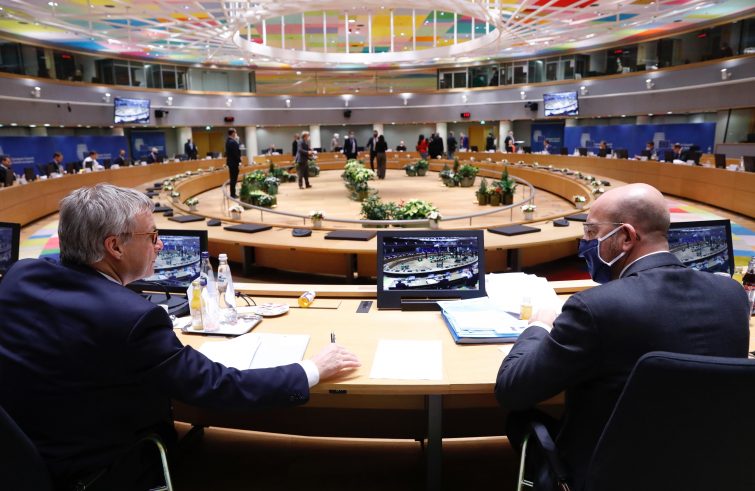
Agreement, understanding; these are magical words at European level, after engaging in talks, bluffing and tugs of war. The European Council that started yesterday and continued today, gave the go-ahead to the Multiannual Financial Framework and Next Generation EU, through which the European Union provides financial support to Member States and response to the socio-economic consequences of the COVID-19, seizing this opportunity – through a huge amount of funding – to set Europe on the path of the Green Deal and Digital Transformation. A preliminary agreement has also been reached on the reduction of at least 55% in greenhouse gas emissions by 2030. A common stance was also taken on Brexit: EU-UK talks are not over yet, the British Prime Minister – caught in the grips of the tragic spread of COVID-19, which he had initially underestimated, economic recession and stifling isolationism – pretends to assert his authority, while the EU, acting as one on this issue, is preparing for a no-deal. As of January 1st, by its own decision, the United Kingdom will be a non-EU country.
Once again, Angela Merkel’s influential mediation, in her capacity as president of the EU Council of Ministers, proved indispensable. The question involved avoiding a veto by Hungary and Poland that opposed the conditionality of EU funding to respect for the rule of law and the principles of democracy, as enshrined in the EU Treaty.
The figures remain substantial: € 1,074 billion from the Multiannual Financial Framework, which, once unblocked, is accompanied by a further €750 billion three-year recovery instrument (€209 billion of which is to be invested in health, social cohesion, education, research, business, innovation, digitization, infrastructure and the environment). The package – amounting to approximately €1,800 billion – will now be submitted to the EU Council of Ministers and the European Parliament and national parliaments for approval.
A race against time, but there should be no surprises.
The funds, linked to compliance with detailed national plans, will be delivered in the coming months. Several billions – through the issuing of social bonds on the market – in addition to those from the European Investment Bank, ESM aid (for direct and indirect health expenditure related to the health emergency) and SURE (instrument to mitigate Unemployment Risks).
As always, new obstacles will hit the European agenda, but yesterday marked a new small step towards political, and economic, integration. Rule of law principles were reaffirmed under the control of the Court of Justice; a Member State, the United Kingdom, is sadly leaving, with no one in its wake; closed ranks to respond to the health (including vaccines) and economic emergencies; climate change was agreed to be a common problem requiring environmental conversion. In the meantime, contrary to a long-standing “dogma”, the EU is issuing safe bonds – rapidly sold internationally since they are guaranteed by the MFF – thus initiating the formation of a European public debt and inaugurating a new season of European fiscal policy.
In this way, while it supports States throughout the crisis, the EU can progressively break free from their control by raising fresh capital on the financial markets.
“A more efficient Europe is needed”, is often claimed. “A Europe closer to the citizens”. These are positive signs.















